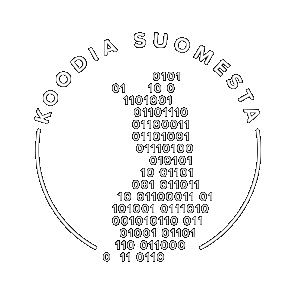I am a multi-sector entrepreneur, and over the last five years I have become particularly familiar with board work. I look at board work very much from the perspective of growth companies and development-oriented organisations.
Our companies tend to solve issues in a fast-paced, continuous improvement mentality. I have often started building a professional board either from a clean slate or from an entrepreneurial board. Then it is both a question of structuring the company for a fast-changing environment and building a team at the same time.
There is also a team dynamic in government
Boards usually have very little time to get to know each other. Often, in practice, you just sit down at the table and start making decisions. At the same time, it is easy to forget how to build team dynamics.
However, the team dynamic exists within the board and is essential for the functioning of the board. Of course, the core function of the board is the business of the company and not the board itself, but if good results are to be achieved, it is also necessary for the board to work effectively together. Without this, there will be no results from the board's work.
Traditionally, government interaction is developed in problematic situations
Often, the development of a board starts when it is noticed that participation is not balanced, the discussion is one-sided, there is a clique between people or they do not get on naturally. Then you look for ways to address this problem in some way other than as part of normal operations.
Often, development starts with doing more than just holding a meeting with the board: for example, a relaxed dinner, a night out or an activity. This is a way of getting to know each other and the backgrounds.
Sometimes an external facilitator or method is also used. These can provide a new perspective on the group and its activities. Depending on the situation, an area of expertise is often selected for external expertise, which may focus on substance, group dynamics, interaction, methods or practices.
SMEs often recognise the need but do not act
It is surprisingly rare that SMEs take a closer look at board chemistry. However, this could be very useful, particularly in understanding the strengths, membership and roles of board members. Often, there is awareness of the issue or the challenges involved, but little or no action is taken.
The chairman has a great deal of influence on the chemistry of the board. The beginning is particularly important, how the board starts working together and what is done together at the beginning. It is quite common to know something about others and their industry experience, mainly from their CVs, and get started. When you do this, those who have not been elected don't really know anything about each other.
Siloing can find its way into government
I have experience of a small growth company where board members were selected according to skills needs and assigned plots based on skills. It was later discovered that there was not enough discussion on the board. Everyone was really competent in their own area, but when it came to discussing the company's policies more generally, there was simply not enough discussion. It soon became clear that a way was needed to generate discussion and to steer people away from the pot holes created by areas of expertise.
Board member is not representative of a field of expertise or interest group
Often, the board is looking for people with expertise in marketing, internationalisation or an industry, for example. Even if you're a top performer in one area, you need to contribute to the debate in other areas and for this, board chemistry and working methods are essential.
Another reasonably common phenomenon is that there may be a person on the board who represents a particular party. This is a perverse approach to board work and does not comply with the spirit of the Companies Act.
Facilitation is increasing as a way for governments to work
I am increasingly using different methods to stimulate the debate. Of course, on many issues we also use the normal discussion. The ratio between facilitated debate and normal spoken debate in my boards is now starting to be about half and half.
SmoothTeam government simulation revealed assumptions and beliefs
The simulation was particularly useful in that it highlighted the assumptions that influence what people do and how they relate to each other. They are often based on beliefs only. Making assumptions visible and discussing them is valuable. Otherwise, we easily have situations where we assume someone is sovereign in an area, but they don't even feel that way themselves. This can lead to major distortions in preparation and decision-making.
The simulation was quite smooth over a couple of hours. We covered a number of topics at a fairly fast pace, and discussed those that naturally generated discussion. The simulation was well-paced, we assessed each other and ourselves, discussed and moved on to the next topic. The topics did not overlap too much and were quite naturally relevant to the government. Structurally, the session worked well and was well structured.
The simulation makes it visible whether others think of me in the same way as I do. When my perception of myself differs from that of others, there is room for discussion. The issues raised by the simulation are ones that carry a lot of weight in government work, so we are not talking about us as people in general, but in relation to government work.
The atmosphere during the simulation was good, curious in a way. It was interesting to learn whether my beliefs were true and what they revealed. During the simulation there were open discussions, which increases trust within the board.
Simulation accelerated the onboarding of a new member
I myself had joined the board as a new member. Some of the people I had known for a longer time and some I didn't know at all. The simulation made it much quicker to join the team and clarified my thoughts and feelings about who I was dealing with.
We learn about the underlying issues
We learn about the beliefs, experiences and strengths of board members and the underlying issues. It's good to bring these into the open so that we understand each other better. For me, one of the aha moments was the need to communicate about things that are not so much communicated about in government work. It is easy to miss out on people's expertise if you have very narrow ideas about them.
The best was when people's beliefs and assumptions about each other didn't quite match. The discussion was very interesting in terms of self-reflection and reflection of others. This is also a way for participants to learn more about themselves. By reflecting on oneself and the perspectives of others in a guided way, things emerge that cannot be analysed about oneself alone.
I recommend the simulation to governments willing to learn
This simulation is suitable for a government that wants to improve its performance. To get the most out of it, governments need to be prepared to look critically at their own practices and to understand both business and people. I believe that the simulation works quite broadly for a wide range of governments.
Board changes can be a natural time for a simulation. A simulation can also be used, for example, at the beginning of a cycle, for example, when a strategy moves into a new phase. I would not postpone the use of simulation because of the freshness of government. If there is a feeling that there is any benefit to be gained from improving working methods and interaction, it is preferable to do it now.

Tero Ylönen
Multi-sector entrepreneur and government employee


